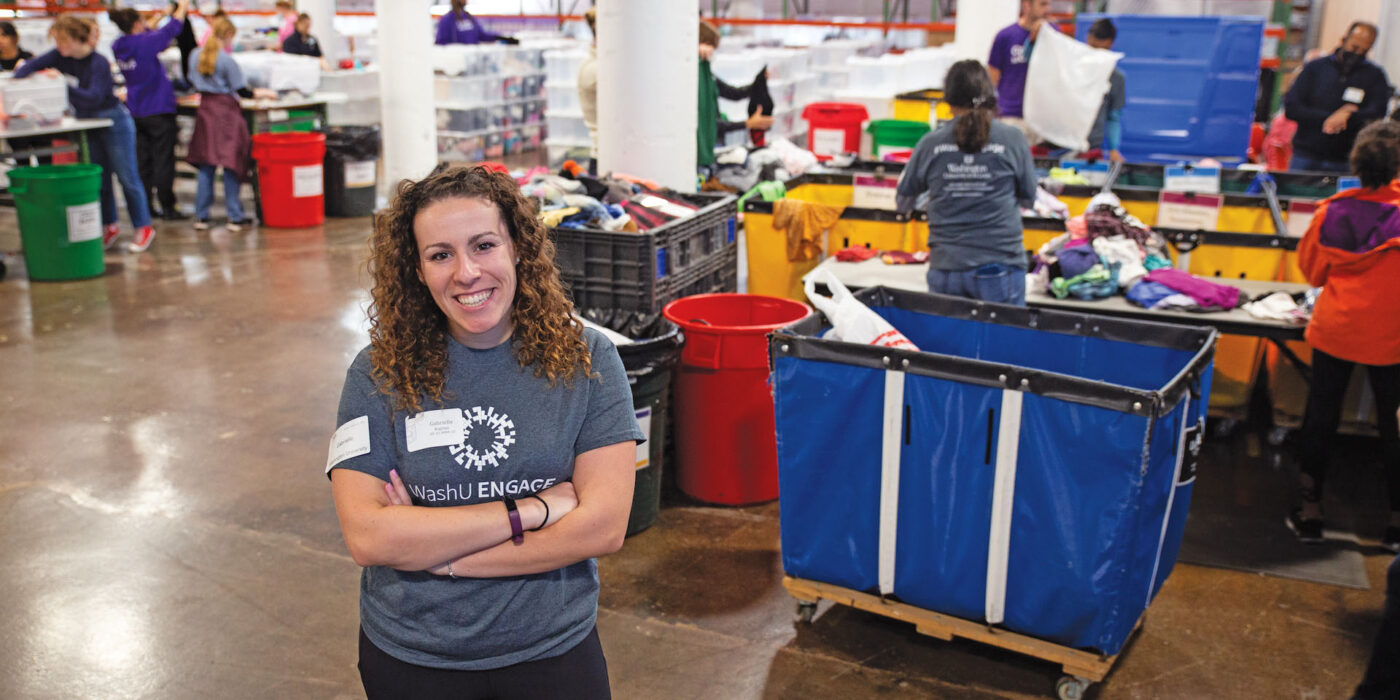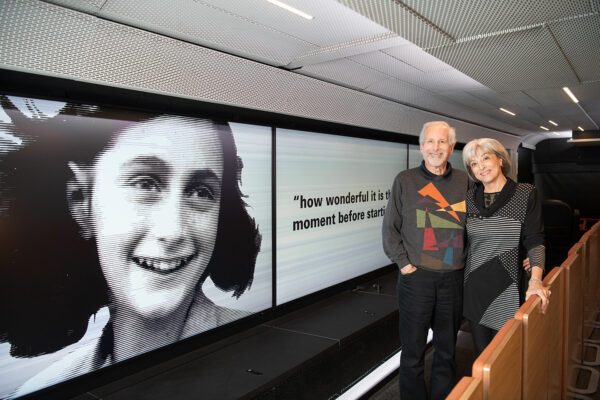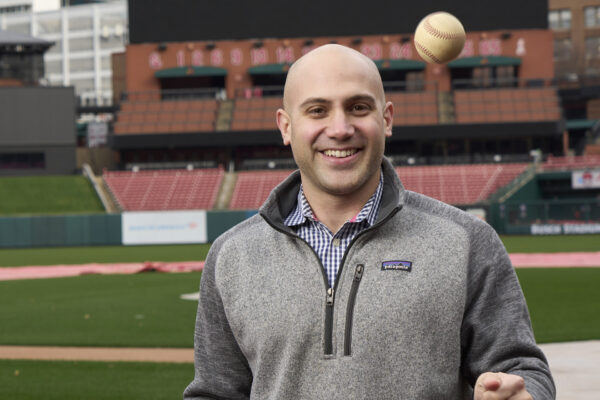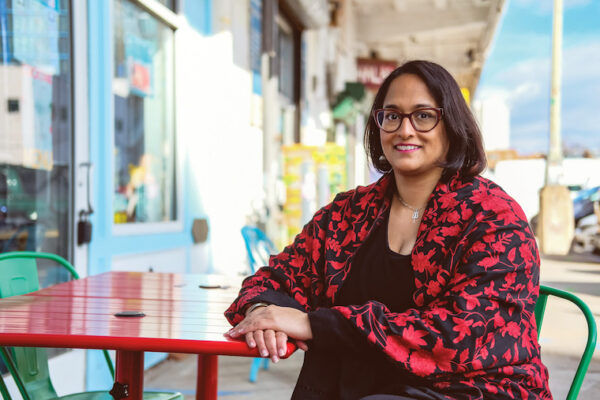To earn a bachelor’s degree from Washington University, students must complete at least 120 units of coursework. That number, however, does not capture the full measure of a WashU education. Many students devote just as much time and energy to clubs, sports and volunteering as they do to their academic pursuits.
Through co-curricular activities, students build friendships and community. They also develop critical soft skills like communication, leadership, problem-solving and time management that complement their classroom studies and prime them for postgraduate success. Today, some of the university’s most recent graduates are finding opportunities through the Alumni Association to maintain the passions, purpose and WashU spirit they developed as students.
Jocelyn Meraz, AB ’18, immersed herself in campus activities like Relay for Life and the Association of Latin American Students when she came to WashU from her hometown of Chicago. She was just as eager to explore greater St. Louis and began by tutoring local Latino youth in math, reading and science via the Niños Cambios Puertas program. But Meraz became truly invested in St. Louis and its diverse populations through the Gephardt Institute for Civic and Community Engagement, where she held various work-study and internship positions from her sophomore to senior years.
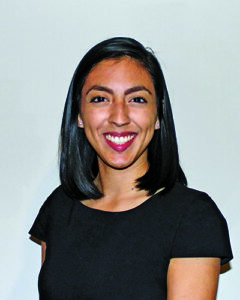
Through her work at the Gephardt Institute, Meraz came to value listening as the most effective tool for partnership and problem-solving. She held onto this wisdom after earning a bachelor’s degree in anthropology, with a concentration in global health and environment, and returning to Chicago for a job in community health care.
Despite a 40-hour work week, Meraz suddenly had more free time than ever before. “Now, what?” she wondered. The answer emerged during a conversation with mentor Stephanie Kurtzman, the Peter G. Sortino Executive Director of the Gephardt Institute. Kurtzman introduced Meraz to the WashU Engage network, which teams with the institute to promote service and community engagement among alumni.
Nearly five years later, Meraz now sits on the planning committee for the Chicago chapter of the network, which also has a dedicated presence in Washington, D.C. Throughout the year, she meets with committee members to organize events and projects for Chicagoland alumni that tackle disaster relief, education, food insecurity, transformative justice and other social issues. “Once I left WashU, I didn’t think I would be able to continue the volunteer work that became so important to me as a student,” Meraz says. “But WashU Engage provides an opportunity for me to stay engaged beyond the walls of campus.”
“Once I left WashU, I didn’t think I would be able to continue the volunteer work that became so important to me as a student. But WashU Engage provides an opportunity for me to stay engaged beyond the walls of campus.”
Jocelyn Meraz, AB ’18
Gabrielle Kaplan, AB ’22, likewise hopes to bridge the best of her student days with her postgraduate life in Philadelphia, where she is an analyst at JPMorgan Chase. As a student, Kaplan’s calendar was routinely packed with commitments to her sorority, Girls on the Run St. Louis, Challah for Hunger and Hillel. More often than not, however, she could be found leading campus tours for the Office of Undergraduate Admissions. Kaplan became a Student Tour Leader, now known as Bear Ambassadors, in the spring of her first year and continued with the program through graduation. She assumed more responsibilities, including onboarding new guides, during an internship her junior and senior years. Even the pandemic could not derail her dedication — she simply shifted gears and began conducting tours and training sessions virtually.
“Being a tour leader made me appreciate my WashU education even more,” says Kaplan, who graduated with a bachelor’s degree in history. “It prompted me to think about everything I love most about WashU, and I also learned a lot from listening to the other guides’ personal anecdotes while training.”
A natural storyteller, Kaplan delighted in sharing her own favorite classes, study spots and university traditions with visiting students and their families. Now, she is eager to do the same as part of the Alumni and Parents Admission Program (APAP), a group of volunteer alumni and current parents who support WashU’s undergraduate admissions efforts.
For Kaplan, APAP is both a natural extension of her relationship with the admissions office and a family tradition. Her mother, Hilary Block Kaplan, AB ’92, is a longtime volunteer and a committee chair for the central New Jersey region. Through APAP, Kaplan especially looks forward to chatting with admitted students about all that WashU has to offer. And because her undergraduate memories are so fresh, she is uniquely poised to give advice and answer questions about the current WashU experience.
Kaplan hopes to help the next generation of WashU students find their place. And as a working professional in a new city, she is doing the same for herself.
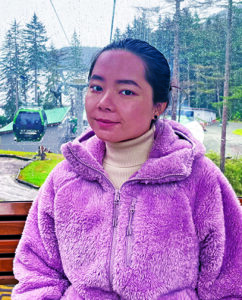
Mia Lai, BS ’17, MS ’18, can relate. Raised in the United States, Lai attended high school in China before coming to WashU and studying systems engineering and supply chain management. Through the years, she bonded with other Asian students on campus over a shared love of music and dance. She developed close friendships while taking part in groups and performances like the Asian Music Association, Carnaval belly dance team, K-pop dance collective PL4Y and Spirit of Korea.
Lai moved to San Francisco after graduation. But with few contacts in the area, she craved a sense of community outside of work. A little over a year ago, she learned about plans to launch a Bay Area outpost of the Washington University Asian Alumni Network, then based in New York, and immediately jumped on board. Since then, she and two others have been instrumental in kicking off the new chapter.
“Everyone needs social connection,” says Lai, who would like to see the group become a social and professional support system for Asian, Asian American, Pacific Islander and Desi American alumni in and around San Francisco.
For Lai and other young grads, staying engaged with the WashU community has helped ease the transition from college to the real world. “WashU always puts students first,” Lai says. “It’s nice to know the university is there for its alumni, too.”
